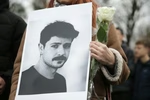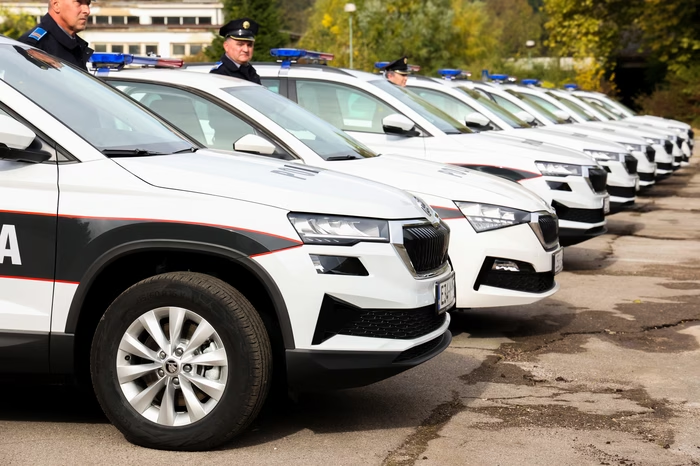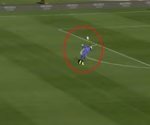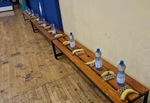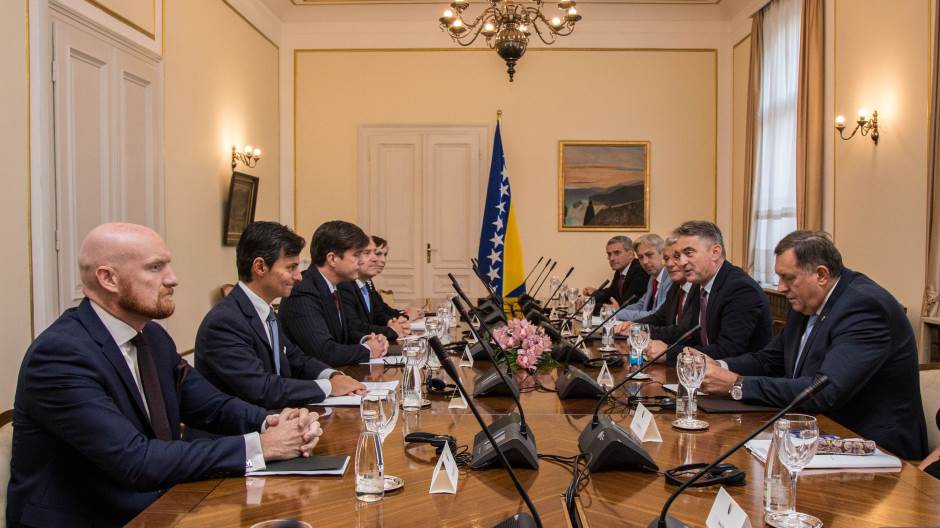
The ambassadors of the five most influential Western states accredited in Bosnia and Herzegovina met in Sarajevo on Friday with Bosnia's tripartite Presidency in an attempt to unblock the process of government formation, which has been at a standstill for over a year, but have achieved no result for now.
Oglas
Presidency members Zeljko Komsic, Sefik Dzaferovic and Milorad Dodik met the ambassadors of the US, the UK, Germany, France and Italy, which was followed by a Presidency session, although the nomination of the new state government, formally known as the Council of Ministers, was not on the agenda.
Following the session, Presidency Chairman Komsic told reporters "there has been no progress" and that the ambassadors did not exert any pressure, but only made "some proposals".
"It's up to us to see how to come out of this situation," he said, adding that the positions of the various political parties remained as distant as before.
Oglas
Although Bosnia held the last election on October 8, 2018, a new Council of Ministers still has not been formed, nor the government of the Bosniak-Croat Federation entity.
The blockade at the state level exists due to a dispute between two election winners, the Bosniak SDA party and the Serb SNSD over the implementation of reforms aimed at the country's NATO accession. The SDA insists on them, while Dodik's SNSD resolutely objects to any drawing closer to NATO, advocating military neutrality on Serbia's model.
The new Federation government has not been formed because the SDA refuses to agree to the Croat HDZ BiH party's demands to reform election legislation to prevent, as the HDZ BiH points out, the outvoting of Croats.
Although Dragan Covic, Bakir Izetbegovic and Dodik, the leaders of the parties which won the most votes in the last election, signed an agreement in early August expressing their willingness to form a coalition, the agreement has not been implemented yet.
Kakvo je tvoje mišljenje o ovome?
Učestvuj u diskusiji ili pročitaj komentare
Oglas
Kakvo je tvoje mišljenje o ovome?
Učestvuj u diskusiji ili pročitaj komentare
Oglas





 Srbija
Srbija
 Hrvatska
Hrvatska
 Slovenija
Slovenija

















